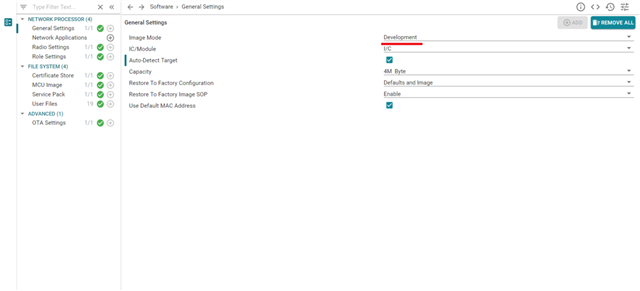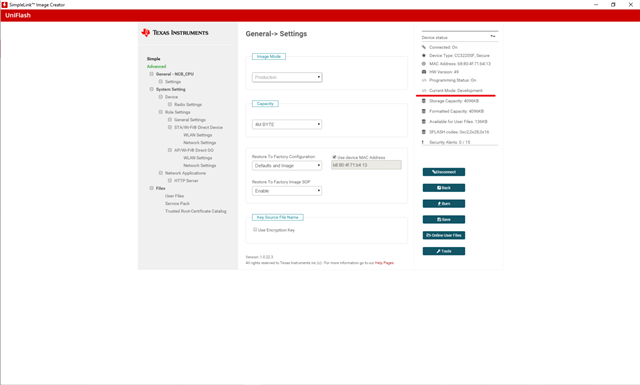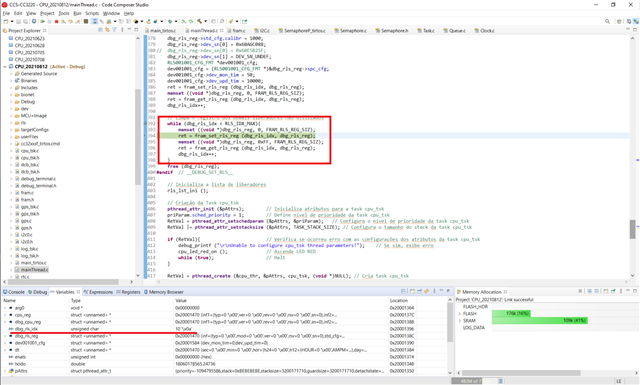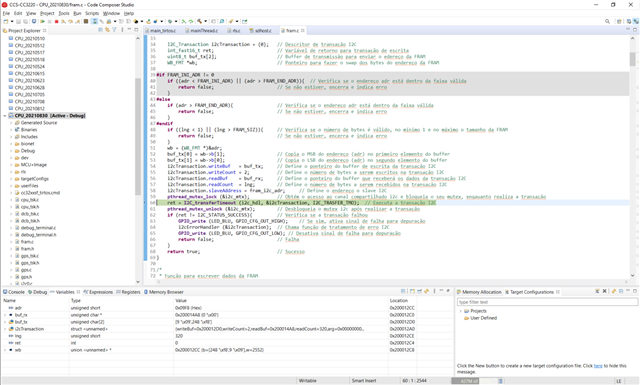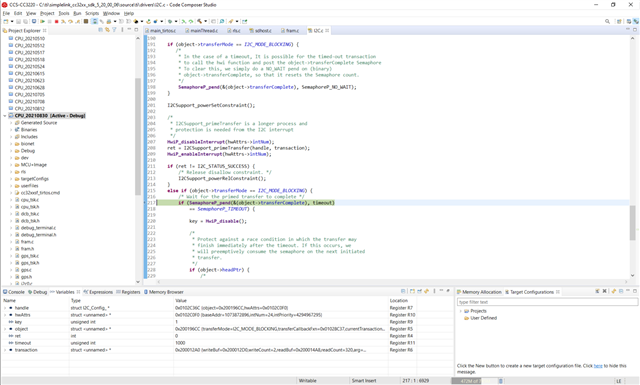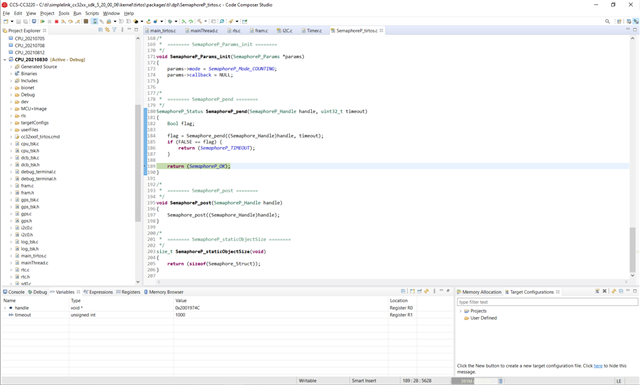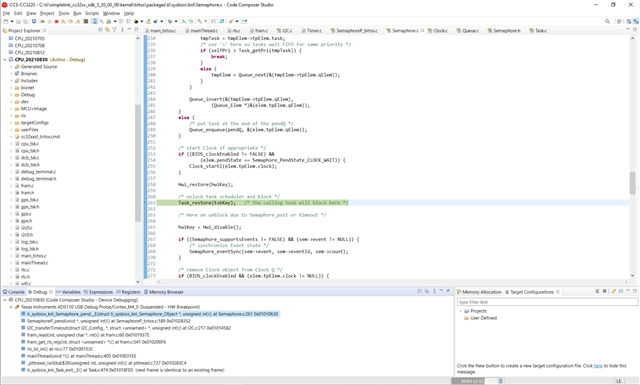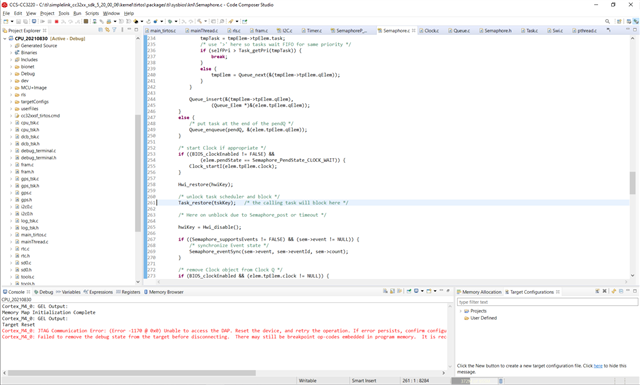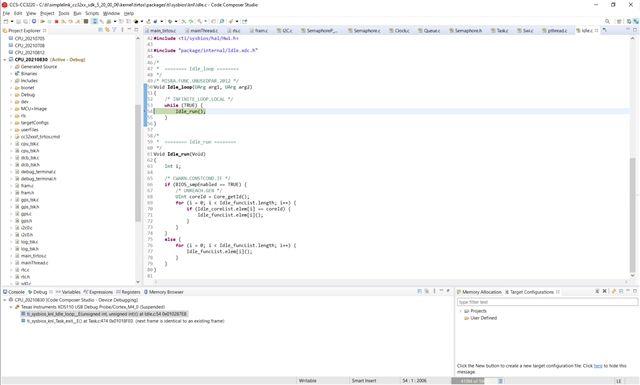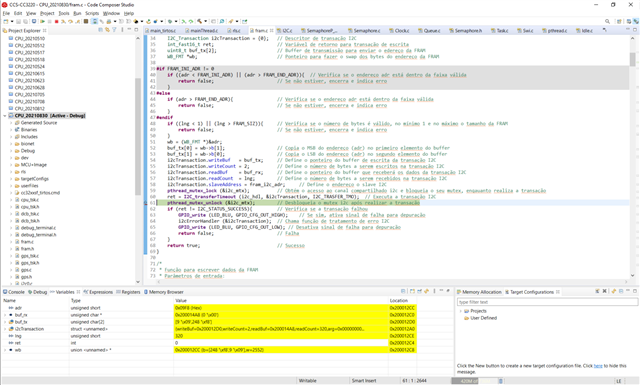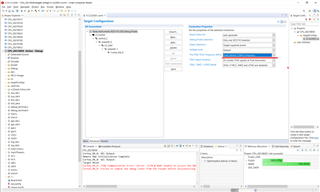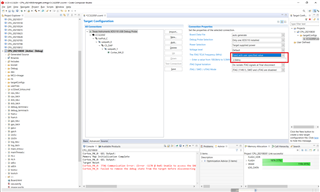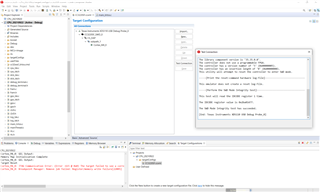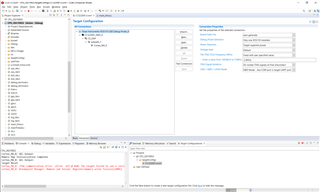Other Parts Discussed in Thread: UNIFLASH, SYSCONFIG
Hello support team.
I'm having a problem debugging with XDS110 and CC3220SF.
My application runs in "MCU + Image" configuration, but in "Debug" mode it's giving the message below:
Cortex_M4_0: JTAG Communication Error: (Error -1170 @ 0x0) Unable to access the DAP. Reset the device, and retry the operation. If error persists, confirm configuration, power-cycle the board, and/or try more reliable JTAG settings (e.g. lower TCLK). (Emulation package 9.3.0.00058)
Cortex_M4_0: Failed to remove the debug state from the target before disconnecting. There may still be breakpoint op-codes embedded in program memory. It is recommended that you reset the emulator before you connect and reload your program before you continue debugging
I've restarted the target, the debugger and my computer several times, but the same problem always occurs.
The Code Composer Studio version I'm using is 10.3.1.00003;
The SimpleLink CC32xx SDK version is 5.10.0.02.
Thank you.


